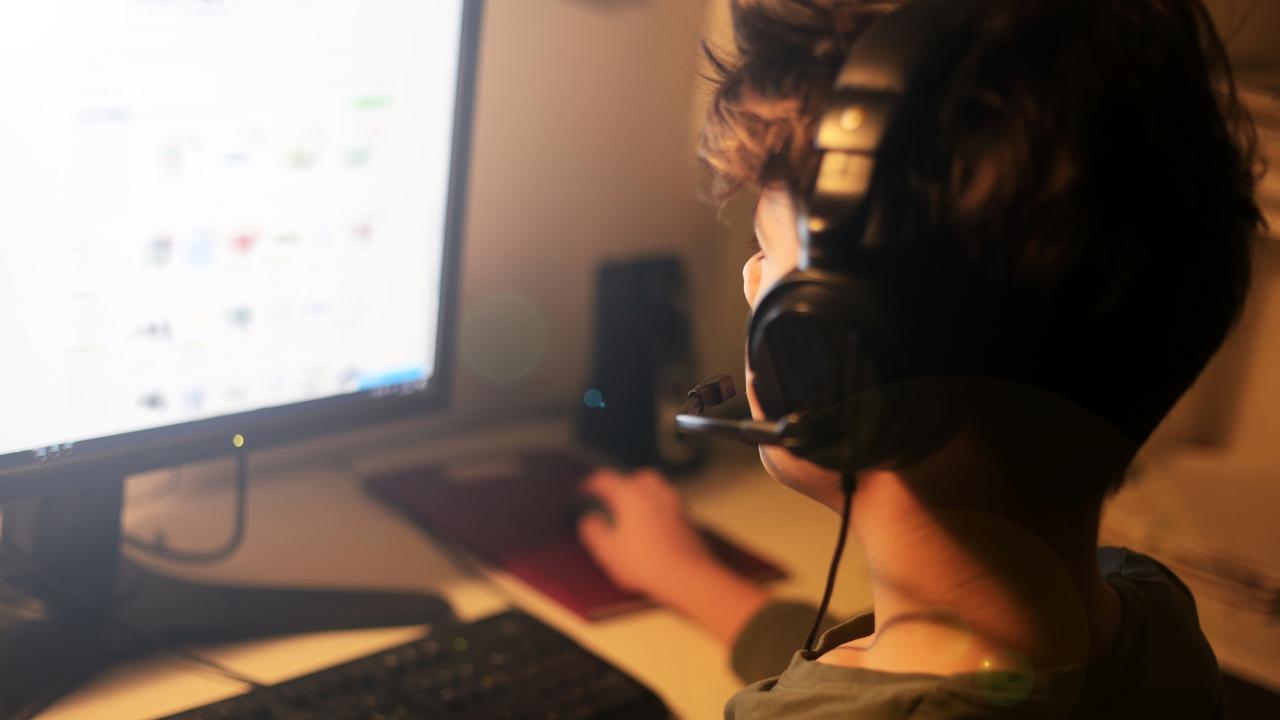Lockdown behind surge in bad video game habits
A troubling spike in risky gaming habits has been linked to lockdown, with kids as young as six spending 13 hours a week on devices.

Victoria
Don't miss out on the headlines from Victoria. Followed categories will be added to My News.
Two thirds of boys playing video games during lockdowns have risky or problematic gaming habits, a groundbreaking study has found.
Such behaviour involves being preoccupied with games, lying about the time spent on them, irritability when being told to stop and an inability to control gaming habits.
Researchers looked at the gaming habits of 550 Italian children aged 3 to 19. Italy was the first country in the world affected by pandemic lockdowns in 2020, and its peer-reviewed experts are spearheading global research in this area.
“Children and adolescents spent more time playing video games during home confinement to avoid boredom and loneliness, with a consequent increase in use and, consequently, in pathological gaming,” lead author Maria Anna Donati said.
Dr Donati and her team found 86 per cent of teenagers played video games during lockdown, with males playing for 19 hours a week on average and girls 11 hours.
Video games were also played by 86 per cent of children from about the age of six, with boys playing for 13 hours a week and girls for seven.
A third of boys played first-person shooter games, along with sports games, while girls tended to play simulation and sandbox games such as Minecraft.
Researchers found one third of boys were non-problem gamers, 44 per cent were at-risk gamers and 22 per cent were problem gamers.
In comparison, 80 per cent of girls were non-problem gamers, 13 per cent were at-risk and 8 per cent problematic gamers.
The results were around the same for teenagers.
The most widespread issues were preoccupation, lying and an inability to control gaming habits.
“The lockdown caused by the Covid-19 pandemic may have further increased their use of video games and, consequently, the risk of gaming disorder symptoms,” Dr Donati said.
“Spending persistent and excessive time on playing VGs is a fundamental risk factor for the development of pathological behavioural symptoms, which have recently been discussed as a formal psychological disorder by both the American Psychiatric Association and the WHO,” Dr Donati said.
As the children aged, they tended to be supervised less by parents, she found.
Bill Browne, senior researcher from The Australia Institute said young people have spent more time on their phones and gaming online during the pandemic and lockdown.
“A growing area of gaming area in this country mobile phone games, which are focused on keeping the players’ attention,” he said.
“They offer a bit of relief but are repetitive and players can become caught up in the game which can be a real concern.”
The Second National Study of Interactive Gambling in Australia surveyed more than 15,000
Australians and found 17.5 per cent of adults had gambled online in 2019, up from 8.1 per cent in 2010.
Australian health authorities recommend young people spend no more than two hours per day online.
More Coverage
Originally published as Lockdown behind surge in bad video game habits









